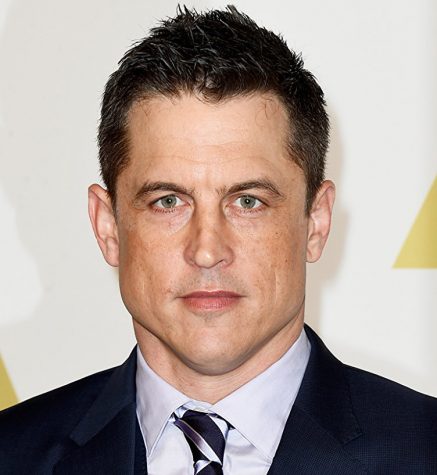Thank You For Your Service: an emotionally charged true story

In the era of war films being popular, Jason Hall comes out with his directorial debut, “Thank You for Your Service” that stands out as a war film that intensifies the emotional aftermath of a soldier who had just come back from the Iraq war and juggles with the struggles of post-traumatic stress disorder (PTSD). The audience is always going to root for war films as they did for “Dunkirk,” “American Sniper” and “Hacksaw Ridge,” and Hall took that response and brought his characters back home. “Thank You for Your Service” is a war film that mainly explores how these soldiers transition, if they do, back into the civilian life. a film that explores this subject after the last film did, “The Best Years of Our Lives,” back in 1946.
Hall conveys sincere authenticity in his directorial debut as he casts Miles Teller and Beluah Koale as Sergeant Adam Schumann and Tausolo Aieti respectively. Hall spills his knowledge and experience from his work as a writer on the war film “American Sniper” while working with director Clint Eastwood. Similar to how “American Sniper” was based on the book of the same name by Chris Kyle, Hall transforms the book of the same name by David Finkel into this film where he chooses to truthfully convey the psychological struggles of these soldiers.
Sergeant Adam Schumann returns home to his loving and loyal wife Saskia Schumann (Haley Bennett) with guilt of skipping both the birth of his boy and the move-in into the new house, along with guilt from the death and injuries of his fellow soldiers back in Iraq in which he believed he was accountable. He is reminded of this guilt as soon as he is confronted by Amanda Doster (Amy Schumer) who pries Schumann to see if she can figure out if he was a witness to her husband’s death, a story that unfolds tactfully throughout because of Hall’s craftsmanship.
Hall treats this film in a unique way through his characterization and differences of the soldiers. A fairly strong man, Schumann, attempts to almost live in denial and acts as if the transition into civilian life is smooth. As he continues to live through the guilt from war, Schumann pries his layers of denial away as he understands the importance of seeking help for what he discovers is PTSD. As this force who believes that life moves on after tragedy at war, Schumann encourages his buddy Aieti to seek help as well, after he (Hall) explores the characters as they seek treatment. This involves intense questionnaires and confrontations that the characters would rather avoid. These characters contrast with another character who is handicapped but is still grateful for his life, who contrasts with Dante (Omar Dorsey) who chooses to be a drug smuggler.
The cast isn’t filled with the biggest names (except for Teller) and some characters are surprisingly cast (namely Schumer), but each actor fits their role perfectly. Teller currently is in a phase of choosing films that bring real people to the big screen starting from “War Dogs,” “Bleed for This,” and his latest “Only the Brave.” Teller seems to be flawless as Sergeant Adam Schumann as he has carved a routine for himself to fit these inspirational roles. Schumer refreshingly brings on a new dimension into her role as Amanda Doster, who ultimately portrays how she was widowed. The audience may be left confused as to why— or even how—she landed this role, which has a small screen space, but may not be surprised if she continues to take up such roles. Koale as Tausalo Aieti, a Samoan soldier, was rightly cast considering the substance of his previous work in two shorts and an independent feature who also comes from the same background as the character he plays. Ultimately, Hall exceptionally hand-picks his cast who translates his goal to convey the truth of the characters on-screen.
Hall emphasizes the aftermath of the Iraq war, for which he handles meticulously making the treatment after this war a distinct when compared to the Vietnam War. Instead of playing out the Department of Veteran Affairs as a villain for the film, Hall instead brings depth to the characters of the soldiers turned civilians and society as a whole. Hall, through “Thank You for Your Service,” emphasizes the role that the Veterans Affairs plays for these soldiers, but also asks society to also be more aware of the struggles and experiences that these soldiers face in war.
Your donation will support the student journalists of Saint Louis University. Your contribution will help us cover our annual website hosting costs.










